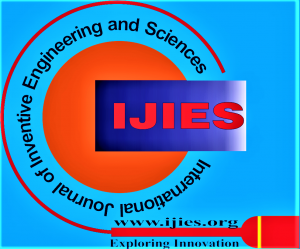![]()
A Review on Efficient Trust Computational and Evaluation Based on Machine Learning
Anil Kumar1, Abhay Bhatia2, Sunil Kumar3
1Dr. Anil Kumar, Associate Professor, Department of Computer Science & Engineering, Roorkee Institute of Technology, Roorkee (Uttarakhand), India.
2Dr. Abhay Bhatia, Associate Professor, Department of Computer Science & Engineering, Roorkee Institute of Technology, Roorkee (Uttarakhand), India.
3Dr. Sunil Kumar, Professor, Department of Information Technology, Ajay Kumar Garg Engineering College, Ghaziabad (U.P.), India.
Manuscript received on 24 October 2025 | First Revised Manuscript received on 28 October 2025 | Second Revised Manuscript received on 02 November 2025 | Manuscript Accepted on 15 November 2025 | Manuscript published on 30 November 2025 | PP: 1-9 | Volume-12 Issue-11, November 2025 | Retrieval Number: 100.1/ijies.K113612111125 | DOI: 10.35940/ijies.K1136.12111125
Open Access | Editorial and Publishing Policies | Cite | Zenodo | OJS | Indexing and Abstracting
© The Authors. Blue Eyes Intelligence Engineering and Sciences Publication (BEIESP). This is an open-access article under the CC-BY-NC-ND license (http://creativecommons.org/licenses/by-nc-nd/4.0/)
Abstract: These days, machine learning (ML) models are used across many complex fields, including bioinformatics, medicine, and other disciplines. Their black-box nature, however, may make it difficult to understand and trust the outcomes they provide. As a result, there is now a greater need for trustworthy visualisation tools to promote confidence in machine learning models. This topic has gained popularity in the visualisation community over the past few decades. To offer an overview of current research on the subject, as well as the frontiers of that study. The Internet of Things (IoT) enables billions of objects, in both physical and virtual contexts, to intelligently communicate with one another. Smartphones, for example, have evolved into valuable personal assistants and an integral part of people’s daily lives and work. Machine learning, such as reinforcement learning and deep learning, is increasingly commonly used in IoT to improve performance and efficiency. Machine learning, on the other hand, has several flaws that could jeopardise the security, trust, and privacy of IoT environments. One of the most serious threats is adversarial learning, in which attackers try to trick the learning algorithm with carefully crafted training examples, leading to incorrect outputs. This Special Issue will feature cutting-edge research from academia and industry, with a focus on debates over the security, trust, and privacy issues in machine learning-based IoT.
Keywords: ML, Internet of Things, Trust Evaluation Methods, Trust Management System (TMS).
Scope of the Article: Internet of Things (IoT)
